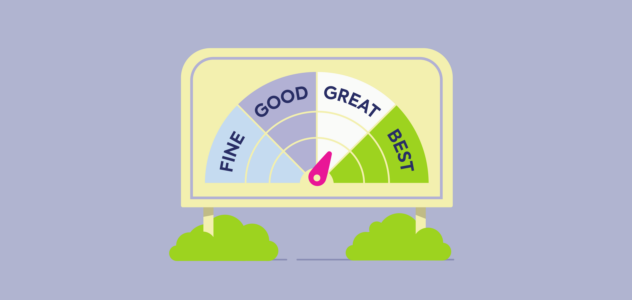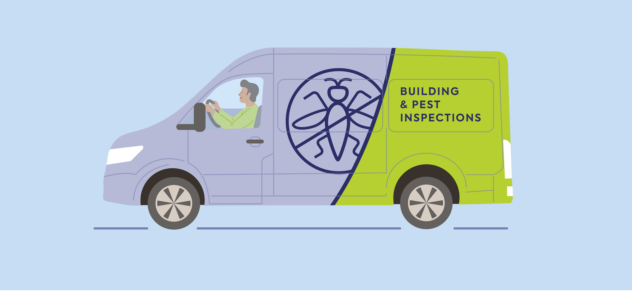HECS home loan changes: what do we know so far?
Great news. From Sept 30 2025, lenders might not count your HECS-HELP debt in home loan calculations.
These changes could potentially make it easier for some Australians with a HECS debt to secure a home loan or increase their borrowing power, sooner.
But wait, what’s the deal with HECS debt and home loans, anyway?
Currently, it’s a requirement for lenders to take into account a HECS-HELP debt when calculating your borrowing power for a home loan application. After all, it’s considered a form of debt.
But recent announcements in 2025 reveal that, in some cases, lenders might not consider HECS-HELP repayments in loan serviceability tests and borrowing power calculations.
In other words, your HECS-HELP debt might not count when you’re applying for a home loan.
These new rules are set to land in September 2025, with each lender still yet to interpret the changes and roll it out in their policies.
Example: here’s how the new rules could increase one homeowners borrowing power by 95K
Prior to 2025, Grace was looking to get a home loan. She had an income of $120,000 and a deposit of $150,000. She owed $15,000 on her HECS debt at the start of the year and has no other debts or credit cards in her name.
According to the repayment rates, Grace is required to pay around $9,000 per year to the ATO for her HECS-HELP loan. Since this is money that can’t go toward a mortgage, the lender considers this as an expense. Given she will repay $9,000 this year, she will only have $6,000 remaining to repay next year (and so will be able to pay it off within 12 months).
Under the current rules – which include your current HECS repayment, regardless of how much you still owe – Grace would have been able to borrow ~$576,000 for a home loan. She could have also chosen to pay off her HECS debt before buying, but that would leave her with $15,000 less in her deposit, reducing her potential buying power.
But now, with the changes set to take place in September 2025, it’s projected Grace is close to paying off her HECS debt within the next 12 months. So the lender is now able to disregard the HECS repayment!
Without the HECS repayment in the calculation, Grace’s borrowing power increases to ~$671,000. That’s $95,000 more!
Buuut not everyone will benefit and you’ll need to meet certain criteria. So let’s dive into the details of the HECS-HELP home loan changes in 2025.
Get personalised mortgage advice
Speak to a Finspo mortgage broker about your next home loan move. 100% online & free.
First, what are the current HECS-HELP debt rules?
Let’s start with a recap on HECS-HELP debt – the loan that “future you” has to pay off so “present you” can go to uni.
HECS-HELP stands for the Higher Education Contribution Scheme (HECS) and Higher Education Loan Program (HELP). But it’s often just shortened to HECS. Under the scheme, eligible students can borrow money to attend university or higher education.
While HECS is still considered a loan, it’s treated a little differently to other debt:
- Your repayments are tailored to what you earn
- You generally don’t start repaying the loan until you’ve hit a certain income threshold (handy)
- HECS doesn’t accrue interest, but it’s ‘indexed’ to keep in line with inflation (learn more about HECS debt here)
Currently, under the responsible lending rules, lenders are required to take into account a potential homeowner’s HECS repayments when determining how much you could borrow – regardless of the size of your debt. So, it’s treated in a similar way to credit cards or personal loans.
But in September 2025, these rules are due for a shake up.
So, what are the changes to the HECS home loan rules?
In 2025, Treasurer Jim Chalmers announced lenders were to ‘relax’ how HECS debt is treated when looking at mortgage serviceability (sounds nice, right?)
From this announcement, ASIC and APRA provided an update to the current lending rules (with updates expected to be underway from 30 September 2025).
We spoke to Daisy, our resident HECS-pert here at Finspo, to give us a recap of the two main changes:
Change 1: Removal of HECS-HELP debt in Debt-to-Income (DTI) reporting
Ok, let’s break down what that actually means. DTI (debt to income) is a policy guardrail used by lenders, in addition to serviceability calculations. DTI calculations are simple: it’s your total debt divided by your total income (total debt being literally every dollar you owe, regardless of type). The result is a single figure the banks use to decide whether or not to lend money to you – and the smaller the number, the better.
Generally, banks may not lend to you if the number comes in around 6 or above (that is, your total debt is more than 6 times your income). But by taking HECS out of DTI calculations, it could help some borrowers stay under the magic number 6.
In saying that, this first change might not have a *huge* effect for a lot of borrowers, with the second change potentially having more of an impact…
Change 2: Lenders can ignore HECS-HELP repayments if the debt is close to being paid off, which will increase your borrowing power
As of September 30 2025, lenders may ignore a HECS-HELP repayments altogether if the debt is due to be paid off ‘in the near term.’ We’re still not sure exactly how ‘in the near term’ will play out, but early information suggests this could mean any HECS-HELP debts due to be paid off in the next 12 months.
So why is this so damn exciting? Well, if the lender is not required to consider your HECS repayment, you will be able to borrow more. Since borrowers are typically taking out a 30 year loan, needing to set aside money for HECS repayments when it’s close to being repaid is a bit annoying. Under the new rules, lenders can ignore HECS (if it will be repaid within a year) and increase your borrowing power.
If you fall into this camp, this could have a big impact. Instead of needing to wait until after your HECS is fully repaid, you can get that higher borrowing power sooner, bringing forward your potential property purchase by a whole year (or more). Ultimately, it can get you into your dream home, sooner.
Who could benefit from the new HECS rules?
Unfortunately, these two key changes won’t benefit everyone (at least right away).
Those who will benefit the most include:
- Those with a higher debt to income ratio (generally above 6). Removing a HECS debt may help to bring your DTI calculation back below 6 and improve your likelihood of getting approved for a loan.
- Those who are close to paying off their HECS debt (within 1 year). The lender could ignore what’s left.
How will this help home buyers?
Currently, a HECS-HELP debt is treated like a credit card or personal loan, potentially impacting your borrowing power by tens of thousands of dollars.
But as of September 2025, if you fall into the second change outlined above, it could bring your borrowing power forward. So instead of waiting until your debt is fully repaid to access the borrowing power you’d like, you can now access it when it’s *almost* repaid.
Ultimately, this could fast track you moving into your dream home.
Will the new HECS home loan changes impact you?
As always, it depends on multiple factors and your situation: How much you earn, how much total debt you have, how much of your income is going toward your HECS, and how long you have left to pay it off.
To find out whether or not these new changes will impact your situation, have a conversation with a mortgage broker (hey, that’s us).
Get personalised mortgage advice
Speak to a Finspo mortgage broker about your next home loan move. 100% online & free.
Should I pay off my HECS before applying for a mortgage?
We’re going to say it again, it depends.
If you’ve only got a year or so left on your HECS debt, you might choose to not pay it off in response to the new rules. Because as of September 30 2025, a lender can choose to ignore it.
But if you have around 3 – 4 years left on your HECS debt and you have the capacity to pay it down to a lower amount so it’s then not factored into calculations, it’ll increase your borrowing power under the new rules. But, on the flip side, if paying off your HECS means sacrificing some of your deposit, it could also reduce your borrowing power (or bring Lender’s Mortgage Insurance into the picture). So it’s always worth exploring both avenues with a broker.
Finally, if you’ve got a healthy deposit, a good income, and a long time before you might pay off your HECS debt, you could leave it where it is. There might be other things you can do that could have more impact on your home loan (like paying off a credit card).
So, as you can see, every situation is different. A mortgage broker (or home loan expert as we like to call them) can weigh up how – or if – these changes impact you.
Find out if the new HECS home loan rules could impact your application
Want to jump ahead of the changes taking place on September 30?
We don’t blame you, after all, it could impact your borrowing power by tens of thousands of dollars.
Chat with a Finspo home loan expert to explore your situation.
It’s as easy as 1, 2, 3…
- Book a chat with a friendly Finspo expert (online, phew!)
- Tell us about yourself and provide any additional info
- We’ll do the heavy lifting and present you with some loan options and a recommendation.
























































































































